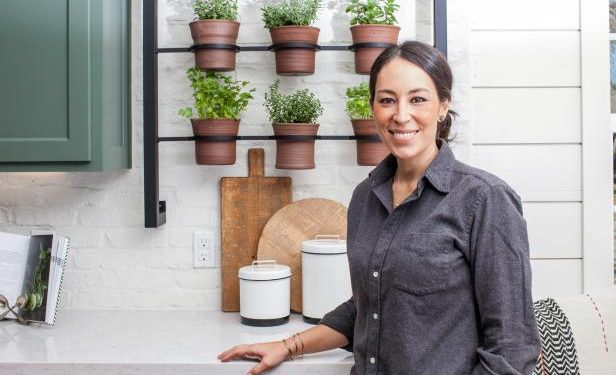How to Grow Herbs at Home?
One of the keys to successful herb growth is plenty of sunlight, as herbs require full sun and lots of water to flourish. Culinary herbs can be planted in an indoor or outdoor garden space, or in a planter box on a sunny window sill. You can opt to plants seeds, which will go through a longer germination process, or to re-pot herbs that have already begun to grow. When repotting, it’s important to ask about the proper soil to plant the herb in, as different herbs prefer different forms of soil.
Do I need a lot of space to grow my herbs?
You don’t need a huge garden to get started. In fact, one of the best places to grow herbs is on your kitchen windowsill. It has plenty of sunlight streaming in and provides a constant reminder to water your plants. You just have to make sure you choose the right herbs to suit these conditions.
How to Create an Indoor Herb Garden in 4 Steps ?
Decide what you want to grow
If you rarely use something like cilantro or bay leaves in your cooking, don’t bother growing your own supply. Consider which herbs you cook with most often, and grow from there. If this is your first attempt at home growing, you might want to use starter plants (growing plants from seeds can be more cost-effective but also requires an especially green thumb). The herbs below do well indoors and provide bountiful harvests for either a single growing season (annuals), two growing seasons (biennials), or even decades of growing seasons (perennials).
Pick your pots.
Choose your material (clay, fabric, metal, or wood will do the trick), then choose your pot size based on where your garden will be. Smaller pots work best if you’re planning to keep your herbs on a windowsill in the kitchen; go a little bigger if you’re going to keep them on the porch. Whether your pot fits one plant or three, you’ll want to give at least eight inches of space to each plant to avoid overcrowding.
Buy soil.
Be sure to buy potting soil, not garden soil—the former allows for crucial water drainage, while the latter does not. If you’re buying blossoming plants from a garden center, check and see if someone will pot them for you, and you may be able to avoid buying soil altogether.
Tend and harvest.
Growing a robust garden requires attention to your bounty. Be cognizant of how much light your plants are getting, and harvest them often to encourage continued growth. Ask the experts at your gardening center if the plants you’re planning to grow to have any special soil, light, or nutrient needs.
What herbs should I grow?
Once you know what space you have to work with, it’s time to start thinking about the herbs and spices you use most in your cooking. This is quite a personal choice depending on your household’s go-to cuisine. If you like cooking Mexican food, try cilantro or mint, and if you’re more into Italian cooking, perhaps you should lean towards basil or oregano that is popular in Mediterranean cooking.
What are some hardy herbs to start off with?
Some herbs are more delicate than others. If you’re a first-time gardener who wants to start slow, here are five hardy herbs that are easy to grow at home:
Parsley
There are so many benefits of growing parsley. It’s easy to grow and can be harvested at any time, so you get at least 12 months of fresh parsley from a single seedling. Plant the herbs in a pot or garden during Autumn or Spring if you want them to flourish. Try our oven-baked prawn and chorizo paella.
Rosemary
Looking for a herb that requires little attention? Then rosemary is for you. Just plant it outdoors in full sun, and it can last for a number of years, surviving on natural elements such as sunshine and rainwater. Try our rosemary and olive focaccia.
Mint
Mint is a must-have herb that can be grown in the sun or shade. But it can flourish out of control, taking over your garden if you are not careful. It’s best to plant it in a large container or pot so it doesn’t become root-bound. Try our slow-cooked lamb with minted pea mash.
Chives
If you like Asian cooking, chives are a great herb to grow in your garden. Used in a variety of dishes, this herb can be grown in pots or used to create garden borders. It’s tough but performs best in cool weather conditions, so plant it during winter in full sun for the best result. Try our mashed potato recipe with chives.
Basil
Basil is one of the most fragrant and versatile herbs to grow at home. It prefers moist, well-drained soil and will require frequent pruning to encourage new growth. It’s a slightly tougher herb to grow but worth it when you can enjoy homemade Italian food, seasoned with fresh basil. Try our basil and mozzarella meatballs.




![The Top & Most Popular Seafood Bucket Restaurants in Dubai for you [Never Miss]](https://uae24x7.com/wp-content/uploads/2020/09/8-seafood-in-a-bucket-scaled-e1600739237403.jpg)
![Procedures for Renewing the Driving License in Abu Dhabi [3 Simple Steps]](https://uae24x7.com/wp-content/uploads/2020/07/Capture-9-e1595666454466.jpg)





